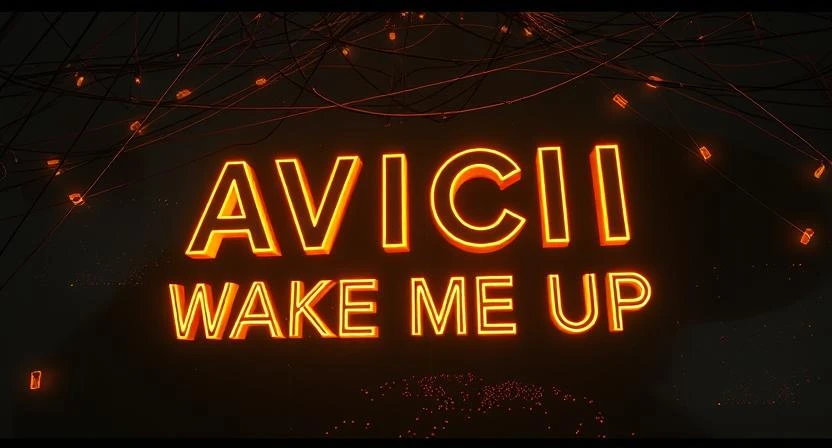Avicii’s “Wake Me Up”: A Timeless Anthem of Rebellion, Roots, and Riding the Storm

When "Wake Me Up" finally hit the airwaves, it short-circuited the music world. A Swedish EDM prodigy (real name Tim Bergling) had dared to marry thumping house beats with… bluegrass? Critics scoffed. "A hillbilly hoedown at a rave?" one snarked. But Avicii, ever the quiet rebel, had stumbled onto genius. Partnering with soul powerhouse Aloe Blacc and Incubus guitarist Mike Einziger, he crafted a track that was equal parts Nashville honky-tonk and Ibiza nightclub. The result? A song that topped charts in 22 countries, racked up 2 billion+ streams, and became the most Shazam-ed track in history at the time.
The song’s now-iconic banjo line was originally played on a MIDI keyboard. Einziger later re-recorded it on an actual banjo… while recovering from hand surgery. Talk about dedication.
The Lyric That Became a Generation’s Mantra
Beneath the foot-stomping melody lies a lyric that punched millennials right in the existential dread. “All this time I was finding myself, and I didn’t know I was lost.” For a generation raised on Instagram FOMO and economic meltdowns, it was a permission slip to admit, Yeah, I have no clue what I’m doing either.
In 2017, a friend backpacking through Thailand emailed me: “Played ‘Wake Me Up’ on loop during a monsoon in Chiang Mai. Felt like Avicii wrote it for my quarter-life crisis.” Turns out he wasn’t alone. The song became an anthem for gap-year kids, burnout corporate warriors, and yes, even my Aunt Karen’s Zumba class.
Avicii’s Quiet Revolution (And The Price He Paid)
The success of "Wake Me Up" marked a turning point—and not just for Avicii, but EDM. Suddenly DJs were collaborating with folk artists; festivals booked the banjo player alongside the laser show. Meanwhile, behind it all, Tim was crumbling. The relentless touring (over 800 shows in 8 years) and industry pressure led to his shocking retirement in 2016. Two years later, at 28, he died by suicide, leaving behind a letter that read, “I could not go on any longer… My life is all about stress.”
In 2019, a star-studded tribute concert in Stockholm raised $1.6M for mental health charities. Artists like Rita Ora and Adam Lambert covered his hits, but when Aloe Blacc sang Wake Me Up solo under a single spotlight? There wasn’t a dry eye in the house.
Why It Still Hits Different Till Now
Post-pandemic, the song’s lyrics feel prophetic. “I tried carrying the weight of the world, but I only have two hands.” After years of lockdowns and chaos, we’re all still “feeling our way through the darkness,” aren’t we? The genius of Wake Me Up is that it’s both a party starter and a therapy session—a reminder that it’s okay to be lost, as long as we keep dancing through the fog.
Final Thought: Next time you hear those opening banjo plucks, do me a favor: Crank it up. Sing like no one’s listening. And maybe send up a little thanks to the shy Swedish kid who taught us all to find light in the lost places.